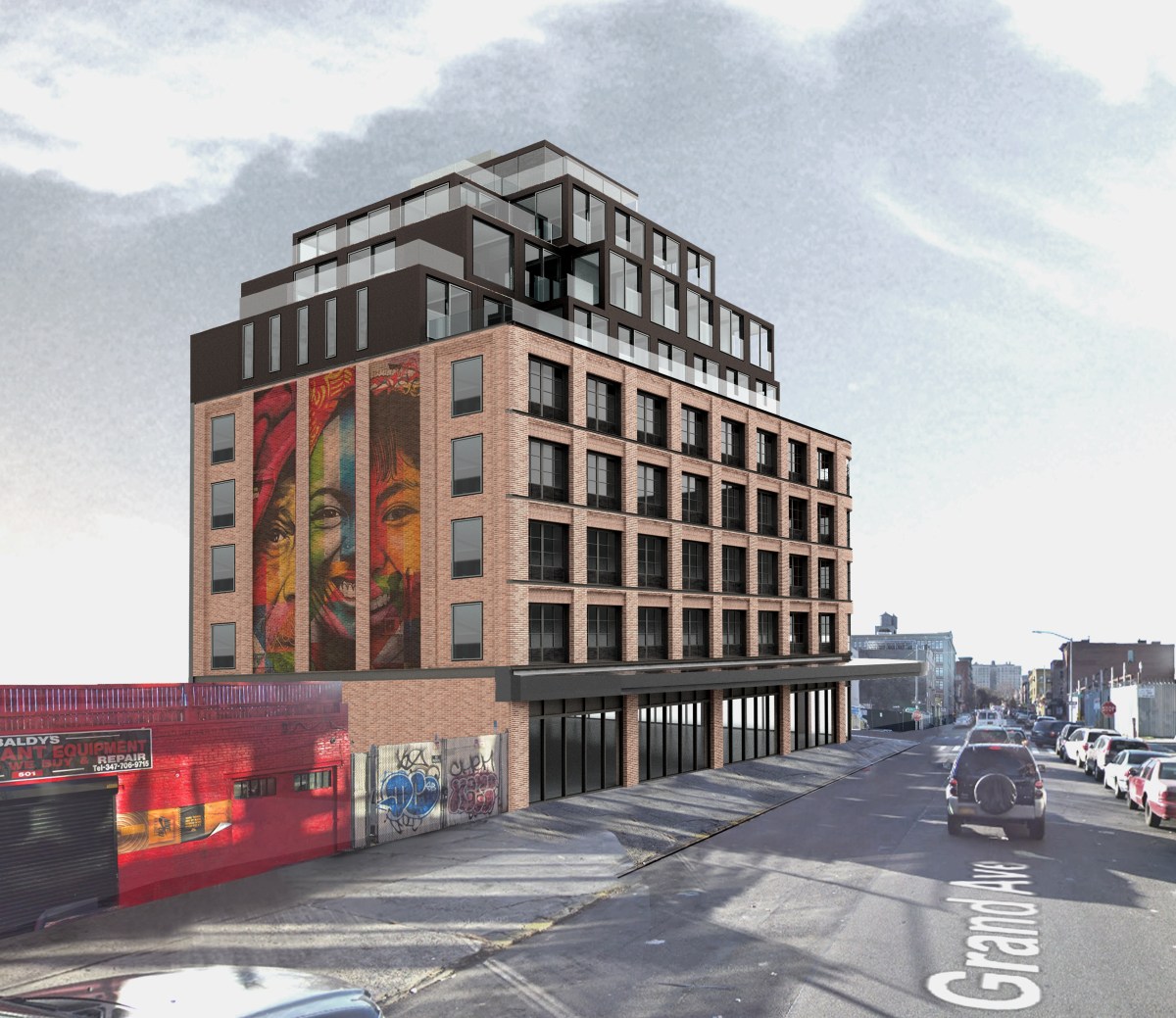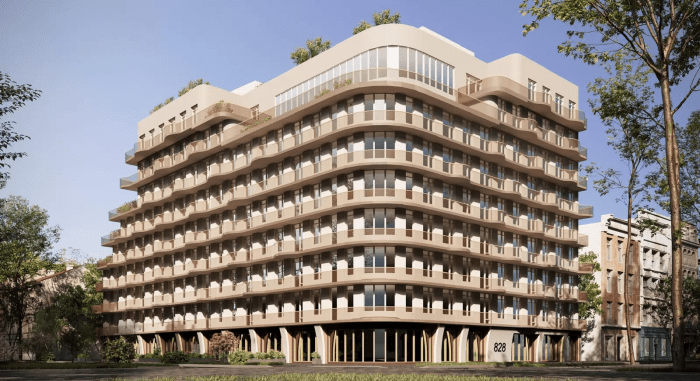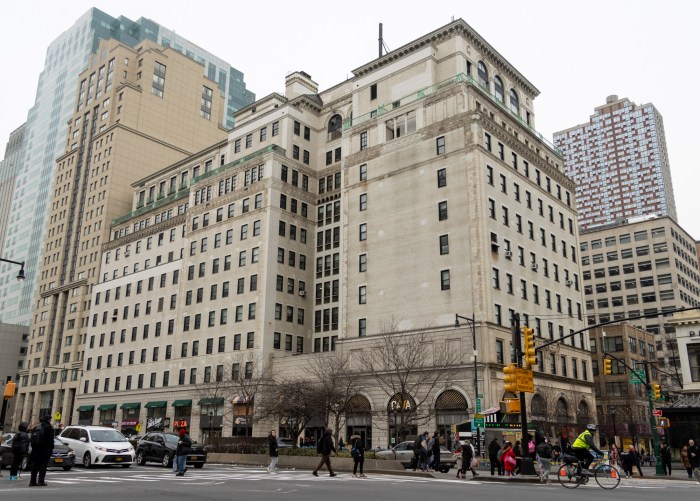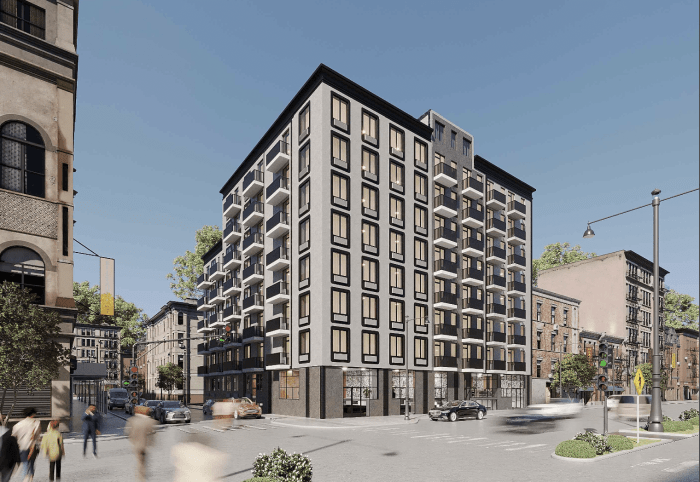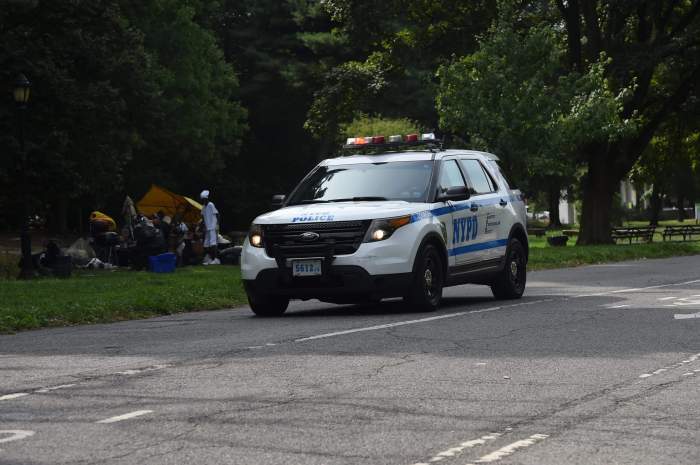Crown Heights civic buffs endorsed a rezoning at Pacific Street and Grand Avenue that would make way for a nine-story building with 64 residential units.
Community Board 8’s Land Use Committee voted 9–4 to recommend the rezoning, which will affect a small stretch of land on Pacific Street near Grand Avenue. The land is currently zoned M1-1, which allows for light manufacturing. The applicants hope to rezone it to R7-D, which will allow medium density, mixed-use apartment buildings. Ground floor retail space would also be mandated under the proposed zoning.
“Right now you basically have empty lots,” said Richard Lobel, a land-use attorney representing the developers. “They’re not productive for anyone.”
“It would create activity where if you walk by right now it basically doesn’t exist,” he added.
The full board will vote on the committee’s recommendation on Nov. 14, which is only advisory, before it is sent to the Borough President for review.
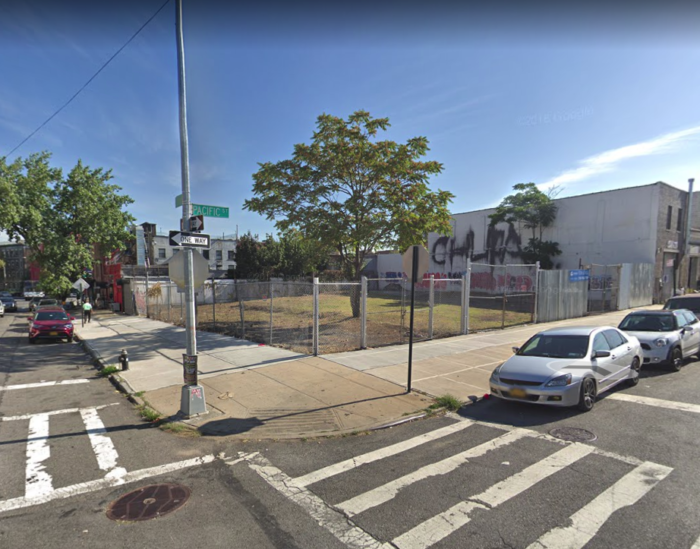
Elie Pariente, the rezoning applicant, hopes to construct the nine-story building on an empty lot he owns on Pacific. The building would contain roughly 9,000 square feet of retail space on the ground floor, which Pariente estimated would create five new jobs, two of which he estimated would be full time.
The building would contain roughly 16 affordable units if approved, according to Lobel. Studios would go for $856 a month on average, one-bedrooms would cost $1,081 a month and two bedrooms would ask $1,309.
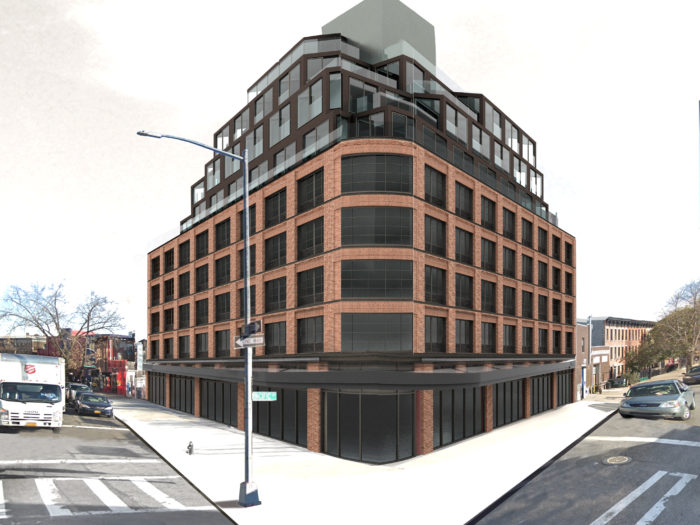
The proposal comes in the midst of the M–Crown rezoning scheme currently being worked out by Community Board 8. The board aims to upzone six blocks east of Atlantic Avenue – Grand Avenue, Bergen Street, Franklin Avenue and the stretch of Atlantic between Grand and Vanderbilt Avenues, while requiring that developers include space for light manufacturing businesses or community spaces, in an effort to increase density and foster economic growth.
Committee member Gib Veconi, who voted in favor of the rezoning, said he felt it was important for the board to work with developers that were willing to include the types of uses the community pushed for, such as light industry.
“It’s important to see when you have an applicant that is putting a project forward that says ‘I can do this, I can include the types of uses the community is looking for,'” Veconi said. “It’s something we want the city and the department of planning to take notice of.”
However, other board members expressed concerns over the development’s meager affordable housing component, with one dissenter claiming the city’s Mandatory Inclusionary Housing system, which promotes the construction of cheap housing by offering builders development rights, doesn’t go far enough to tackle the borough’s housing crisis.
“They’re really not promising to do more than the bare minimum that MIH requires of them,” said Sarah Lazur, who voted against the rezoning.


